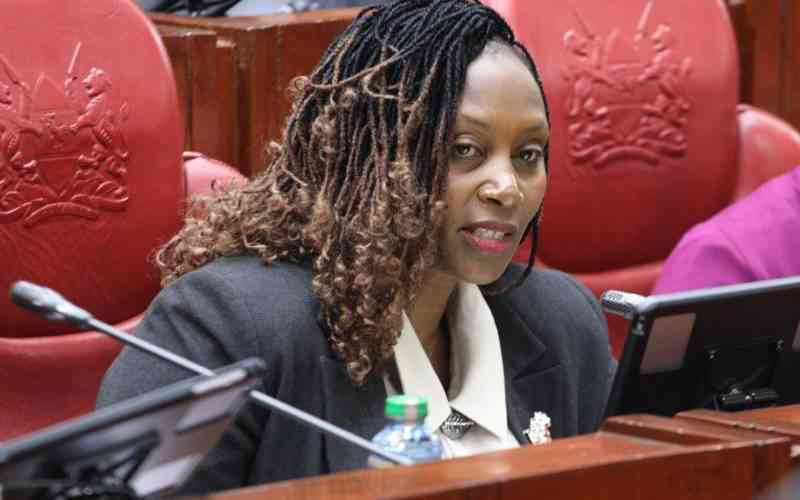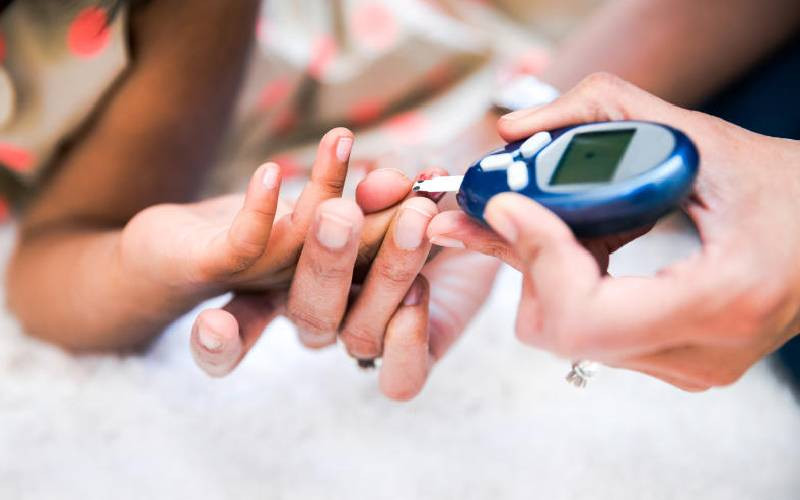
The Ministry of Health has dismissed claims that it is working with British American Tobacco (BAT) to sensitise the public on the dangers of tobacco use.
Principal Secretary Mary Muthoni, in a quick rejoinder following public uproar, reiterated the government's firm stance against tobacco, stating that the crackdown on tobacco use will continue.
Muthoni said the allegations were a deliberate attempt to tarnish the Ministry’s efforts to reduce non-communicable diseases such as cancer, which are strongly linked to tobacco use.
She was responding to claims by a lobby group alleging that she had signed a letter indicating collaboration with British American Tobacco (BAT)—a document she dismissed as fake.
“After seeing the letter circulating online, I flagged it as fake. The Ministry also issued a statement confirming it was fabricated,” Muthoni told The Standard in an interview.
She expressed concern over what she termed as a coordinated smear campaign by individuals exploiting tobacco control laws and policies to damage her reputation.
- 'I want to stop': Young Kenyans open up about struggle with masturbation
- Health Ministry under fire after partnering with BAT in health campaign
- Show us the vaccines, advocates demand amid acute shortage
- Twists and turns as MoH seeks controversial partnership with BAT
Keep Reading
“There is a cartel pushing this narrative with the sole aim of destroying my image,” she said.
Muthoni reiterated her firm stance on tobacco control, emphasising that the crackdown will not stop.
“The crackdown on tobacco cannot be relaxed. It will continue,” she said. “I have been a leading advocate for a tobacco-free Kenya, even overseeing the closure of some companies. This hasn’t sat well with certain people and sectors.”
She added, “Nevertheless, my stand remains—let us focus on the real issue. The crackdown on illegal tobacco products in the country will continue. These aimless letters circulating about BAT are a distraction. That is not what the public wants to hear. What people want to know is whether we are actively fighting tobacco or not.”
Muthoni maintained that claims of the Ministry working with BAT were misleading. She said she would only respond to such allegations if they were officially submitted to her office.
Over the weekend, the PS led a public sensitisation meeting in Kirinyaga County to address the dangers of tobacco and alcohol use. The meeting came amid a broader crackdown on industries involved in the sale and advertisement of tobacco products.
Muthoni, whose office champions preventive and promotive health to combat diseases such as cancer, affirmed that public health efforts would continue until there is a significant drop in related cases.
“We will go all out to ensure public health principles are upheld in this country. We cannot allow selfish interests to destroy a nation, a country, or an entire generation of young people,” she said.
She further emphasised the Ministry’s commitment to enforcing the law governing the sale, manufacture, and advertisement of all tobacco and nicotine-related products.
In conclusion, she urged manufacturers and industry players to comply with the Tobacco Control Act, which restricts the production and distribution of nicotine products.
The Ministry of Health is seeking to amend the Tobacco Control Act to restrict nicotine products.
The review of the law is aimed at reinforcing Kenya's commitment to reducing tobacco and nicotine products affordability, curtailing the tobacco industry's influence, and fostering transparent and inclusive policymaking.
Taxation on tobacco is low, with two tiers of Sh2,630 per mille for cigarettes with filters and Sh1,893 per millee for plain cigarettes, with 35 per cent.
According to the WHO recommendation, excise tax should be 70 per cent of the recommended retail price to curb cancer, diabetes and heart disease.
WHO notes that tobacco taxation can contribute to the prevention of 9,000 deaths every year in Kenya.
Since 2023, review of the Tobacco Control Act and Regulation has steadily gained traction, with the latest push coming from the Ministry of Health and Ministry of Interior and the National Administration.
Further lobby groups have been demanding a ban on tobacco products like nicotine pouches, such as Velo, and want tobacco products to bear high-resolution graphic images to show their impact to consumers and a ban on the promotion and sale of tobacco.
Additionally, they have been pushing for transparency in operationalisation of the Solatium Fund.
“I would like to ask the people involved to ensure they do not go against the law and ensure that they think about the public good first before making that coin.
Think about people who are dying of cancer because of you, think about many children who have dropped out of school because of you. Think of many mothers whose children have been aborted because of you,” cautioned the PS. “Think before you sell that product to any Kenyan.”
 The Standard Group Plc is a multi-media organization with investments in media
platforms spanning newspaper print
operations, television, radio broadcasting, digital and online services. The
Standard Group is recognized as a
leading multi-media house in Kenya with a key influence in matters of national
and international interest.
The Standard Group Plc is a multi-media organization with investments in media
platforms spanning newspaper print
operations, television, radio broadcasting, digital and online services. The
Standard Group is recognized as a
leading multi-media house in Kenya with a key influence in matters of national
and international interest.











